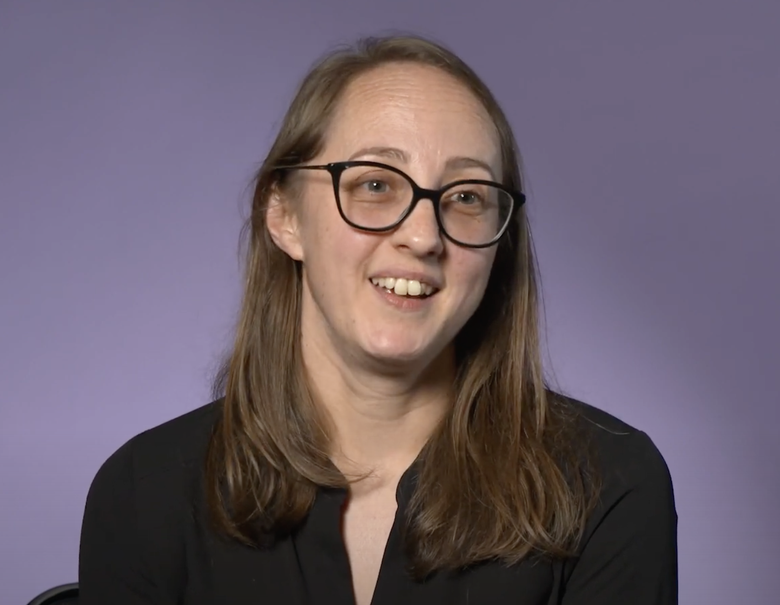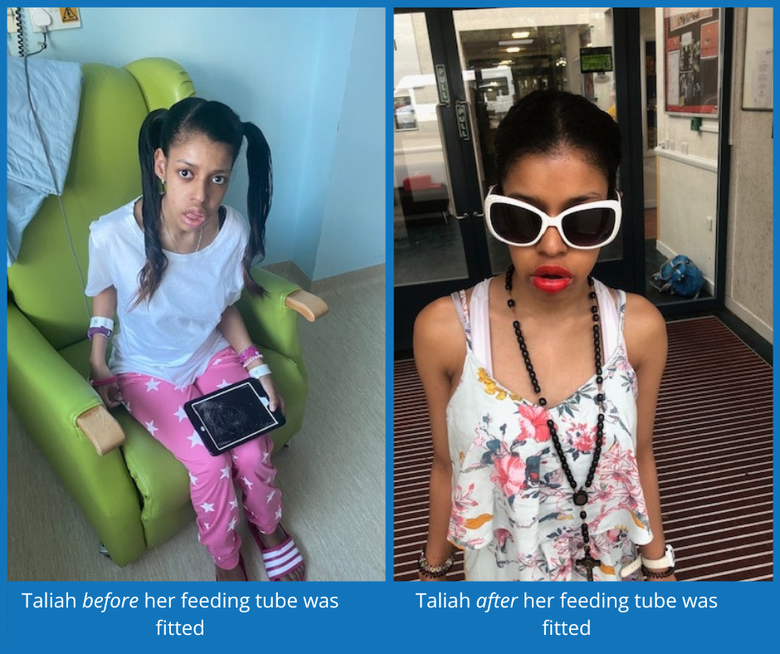Study finds half of people living with Dravet Syndrome experience feeding problems
We are pleased to share the results of our research partnership with Dr Lisa Clayton, exploring an aspect of living with Dravet Syndrome which is rarely talked about but has a huge impact on family life.
A study to explore the impact of feeding difficulties in children and adults living with Dravet Syndrome, found that over half (52%) reported that they had experienced some form of feeding difficulty and some experienced many different problems with feeding. The findings also showed that around 1 in 5 people with Dravet Syndrome may require a feeding tube (called a gastrostomy) at some point during their life to help address the feeding issues.
The research conducted with Dravet Syndrome UK revealed that 88% of carers of someone with Dravet Syndrome had a high level of concern and fear about having a feeding tube fitted and that there was a lack of information available. However, once the gastrostomy was inserted, the opinions of caregivers completely changed with 88% happy that their child had the gastrostomy, and more than 90% agreed that they had a better-quality life, better nutrition, got their medication on time and that caregivers found that it was easy to use.
Lisa Clayton, Clinical Research Fellow, UCL Queen Square Institute of Neurology and Neurology Registrar, who led this research said: “We found that feeding problems were common in people living with Dravet Syndrome and can emerge at any age. Severe problems with eating can be particularly worrying for caregivers as it can affect both nutrition, hydration and giving medicines to the person they care for. It is vital that health professionals have early discussions with caregivers about feeding issues to avoid unnecessary delays in intervention if needed.”
Underlying causes and risk factors for feeding issues in people living with Dravet Syndrome are currently unknown and are likely to be complex. More research is needed to explore the causes and find ways to try and address them.
The full research report can be accessed here.

This important research highlights one of the many challenges faced by children and adults living with Dravet Syndrome and their families on a daily basis. Our strategy is to create a better understanding of the realities of caring for people with Dravet Syndrome, and to empower families to access the support they need by providing an evidence base through studies like this.
Taliah's story
Edwina Williams, mother of Taliah who lives with Dravet Syndrome, contributed to this research as her daughter had feeding problems for a number of years and then had a gastrostomy fitted. She said: “As a parent you always want to do the best for your child, but sometimes it is difficult to figure out what the best thing is. As time went on, Taliah’s feeding issues worsened, and I was watching my daughter wither away in front of my eyes. This is when I contacted her medical team to arrange for her to have a feeding tube fitted as I knew that we needed help. It has been a long journey, but I can honestly say that the feeding tube has been the absolute best thing for Taliah, and our family. She is no longer dehydrated, she no longer sleeps for most of the day as her body has the correct nutrients, her hair is glossy, and she is a chatterbox now too!”
About Gastrostomy
Gastrostomy is a surgical procedure for inserting a feeding tube through the abdomen wall and into the stomach. The feeding tube can be used to administer medications as well as food and fluids. People with a gastrostomy can still eat and drink normally if they wish and if it is safe for them to do so, but the tube ensures that they receive enough nutrition, hydration and medications.
About the research
The anonymous, cross-sectional survey regarding feeding difficulties and gastrostomy was developed by adult neurologists working with individuals with Dravet Syndrome, alongside representatives, and caregivers, from Dravet Syndrome UK (DSUK). The survey was shared through email and private Facebook group to DSUK-registered families, and open for responses between 7th and 28th January 2022. Survey questions were multiple choice, including Likert scale responses, with opportunities for open-ended responses. 124 families took part in the survey. The full research report can be accessed here.
Advice advice about feeding difficulties in Dravet Syndrome and what to do
In this short film Dr Lisa Clayton gives advice about what to do if the child or adult you care for with Dravet Syndrome is experiencing feeding problems.
Watch the video
